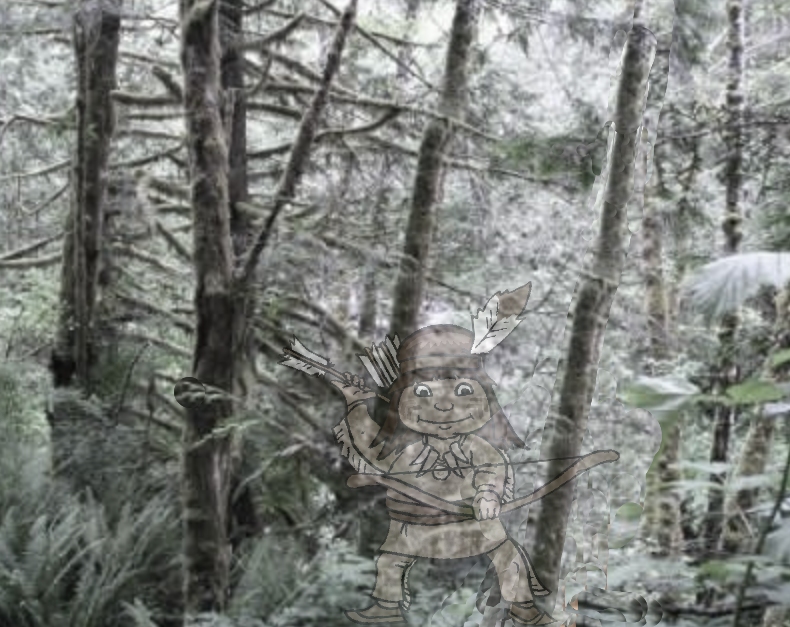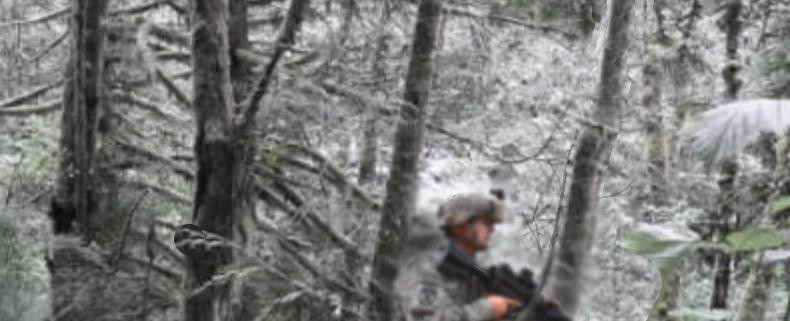Standing ankle deep in black, slimy swamp muck, Sgt. William “Billy” Franks paused to catch his breath and to look over his shoulder, for the umpteenth time.
Nothing moving, not even a leaf. Good.
The humid jungle was silent. Even better.
They were still a ways behind him, he hoped. But they were coming. He knew so because every hair on the back of his neck stood at attention, and the neck-hair test had never been wrong before. Not ever.
Unfortunately, he was confident it wouldn’t be wrong this time, either.
Sgt. Franks was parched. His lips and throat as dry as desert sand, a reminder of the last time he’d been in a serious battle, fighting to survive. Hard to believe that conflict beneath a blazing sun had been only a week ago.
He just couldn’t seem to steer clear of trouble, no matter how hard he tried.
No time to think about it, though.
Not now.
Today’s setting sun had already begun to paint the surrounding landscape in various shades of gray and black. Giant shadows crept slowly across the forest floor, feeding on splotches of light along the way.
Night was coming as fast as they were.
Finding clean water to drink would have to wait.
It was time to move on.
He’d fought the enemy—the entire outfit—all afternoon, before finally escaping into the jungle where he’d been running for hours.
The sergeant’s hair was caked with mud and his camouflaged BDU’s were wet and filthy. His rifle, thankfully, was dry. He was exhausted and unsure how much longer he could continue.
They were relentless in their pursuit and he was sure they were closing in.
He had to find the strength to keep moving.
“I will survive,” he whispered to himself.
Suddenly he heard a voice from beyond the vines and thick, lush plants to his left. He dove for cover behind a moss-covered log. Something large and long slithered away through the undergrowth covering the forest floor.
He heard it again. This time the voice seemed closer.
Knowing his options were now few, he took a quick peek over the rotting tree and saw someone standing in a clearing just beyond the tree line.
They called out again.
“Billy, it’s time to wash up for dinner!”
Sgt. Billy Franks, knowing it would not be in his best interest to dilly-dally, stood and used his hands to brush bits of dirt and dried leaves from his knees. Then he stepped from the small patch of woods into his backyard where his mother stood waiting. He whispered to himself, “Maybe tomorrow I’ll be a cowboy.”
Glancing back over his shoulder he saw a Native American man standing in the shadows. His next adversary appeared ready for battle.
The warrior whose face paint included two opposite-facing arrows, locked eyes with Billy for a second and then faded into the forest. A drumbeat began to thump from a place deep in the woods.
“Tomorrow, Chief, right after I’ve had my Fruit Loops and orange juice, it’s you and me. Because those woods aren’t big enough for both of us.”
Shouldering the stick he used as a pretend rifle, Billy marched toward his mother, wishing he were five again because being six was really hard work.

DIGITAL PUBLISHING ACADEMY
Date: June 24, 2023
Time: 1:00 – 2:30 p.m. EST
This, today and tomorrow morning, is your last chance to sign up to attend the Writers’ Police Academy Online session with Bookouture Commissioning Editor Susannah Hamilton. It’s a fantastic opportunity to learn about the many aspects of digital publishing, and you’ll get the inside details about Bookouture and all they have to offer authors.
You’ll also hear about Bookouture’s submission process (they’re currently accepting submissions, both from agents and directly from writers), and the types of genres they’re looking for, which is an extensive list.
The icing on the cake is that you’ll meet and chat directly with an editor who acquires new books from both new and established authors.
This is the real deal, folks.
By the way, I know a bestselling author who publishes with Bookouture and they’re doing extremely well. I mean … EXTREMELY WELL. They describe the experience as the best they’ve seen in all the years they’ve been a published author.
Bookouture is a division of Hachette UK.

Are you interested in entering the world of digital publishing but don’t know where or how to begin? Well, I’m pleased to announce and offer an exciting Writers’ Police Academy Online course—Digital Publishing Academy. This class is a unique opportunity for writers to learn from and chat with a top industry professional, Commissioning Editor Susannah Hamilton of Bookouture, a division of Hachette UK. So, if you’ve wanted a foot in the door to a leading publisher, here’s your chance!
About the Course
Digital Publishing Academy
Date: June 24, 2023
Time: 1:00 – 2:30 p.m. EST
Registration: $15
Bookouture Editor Susannah Hamilton will talk about all things digital publishing, including what works well in digital, a look at the different stages of editing, and a brief foray into crime and thriller genre nuances for the digital market. Susannah will also give a brief overview of how Bookouture, a division of Hachette UK, works for its authors. There will be a Q&A at the end.
Click the link below to reserve your spot!
About Susannah Hamilton

Commissioning Editor Susannah Hamilton has over ten years of experience in the industry, and joined Bookouture in November 2021. Susannah’s list includes Kindle top 100 bestselling authors, such as Casey Kelleher, Elisabeth Carpenter and Amanda Lees, who have reached the charts in both the UK and the US. Susannah manages every element of the publishing strategy and process for her authors, supporting them every step of the way.



